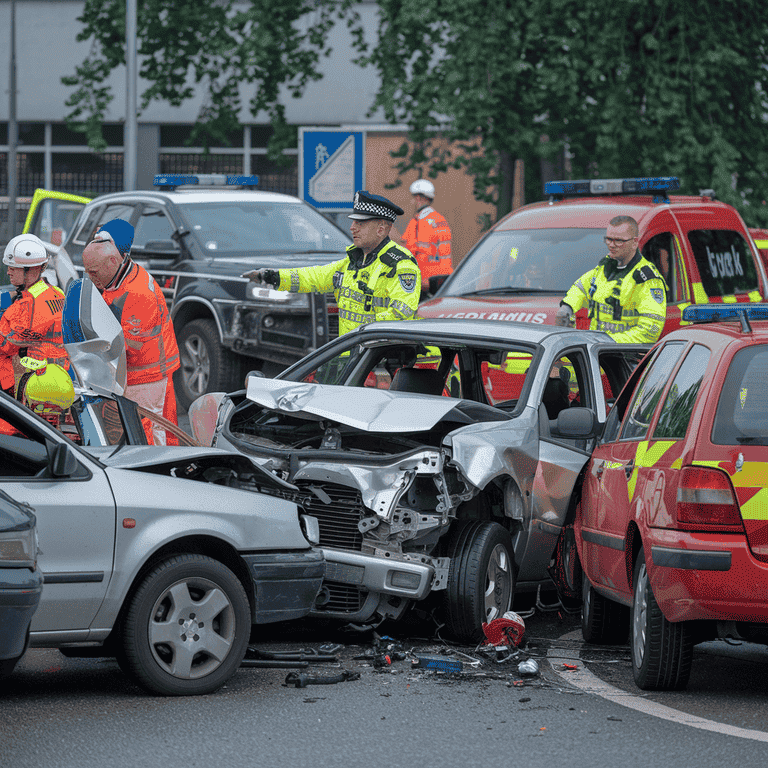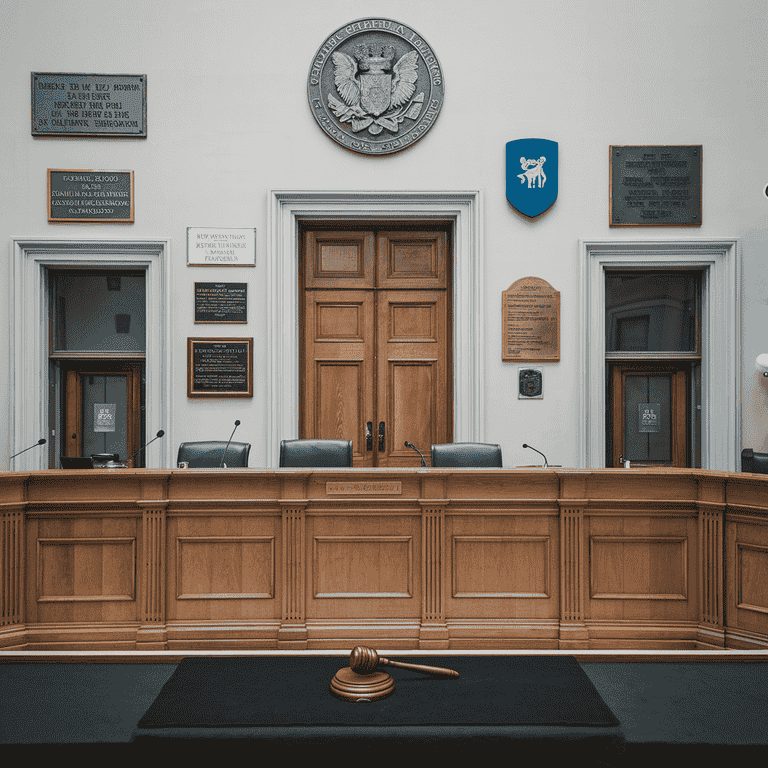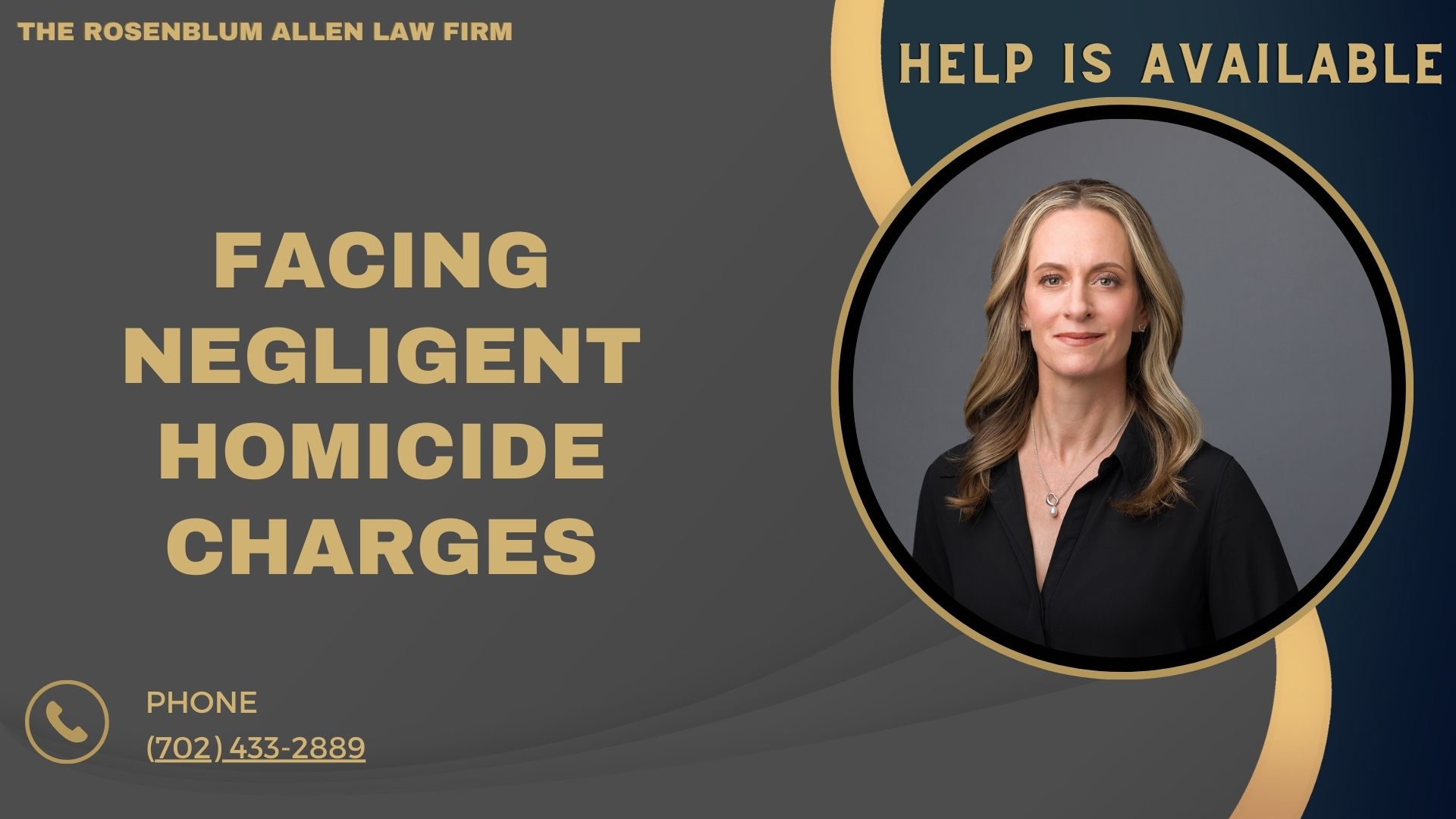Negligent homicide occurs when someone’s careless actions result in another person’s death. It doesn’t involve intent to harm but rather a failure to act responsibly. This makes it different from murder or manslaughter, where intent or reckless behavior is usually involved.
For example, I was driving at a red light while texting and might have unintentionally caused a fatal accident. While the act wasn’t deliberate, it shows a lack of regard for the safety of others.
Common Examples of Negligent Homicide
Negligent homicide can happen in a variety of situations, including:
- Car Accidents: A driver operating under the influence or engaging in distracted driving causes a fatal collision.
- Medical Malpractice: A healthcare provider fails to follow basic standards of care, leading to a preventable death.
- Unsafe Work Environments: An employer neglects safety regulations, and an employee dies in a preventable incident.
- Improper Supervision: A caregiver fails to properly monitor a child or vulnerable adult, resulting in fatal consequences.
These examples highlight that negligence often stems from poor decision-making or inaction rather than malicious intent.
Legal Elements of Negligent Homicide
Duty of Care
A vital part of any negligent homicide case is proving that the accused owed a duty of care to the victim.
What is Duty of Care?
Duty of care is the responsibility to act to protect others from harm. This duty exists in many situations, such as:
- Drivers: Ensuring safe operation of a vehicle.
- Doctors: Providing competent medical treatment.
- Employers: Maintaining a safe workplace.
If someone fails in this responsibility, they may be considered negligent.
Breach of Duty
Once a duty of care is established, the next question is whether it was breached.
How Does a Breach Occur?
A breach happens when someone doesn’t meet the expected standard of care. Examples include:
- Ignoring traffic laws.
- Failing to maintain equipment in a safe condition.
- Skipping essential medical procedures.
Courts often consider what a “reasonable person” would have done in the same situation. A breach may be found if the actions fall short of this standard.

Causation and Resulting Death
Proving Causation in Negligent Homicide
To hold someone responsible for negligent homicide, the prosecution must show a direct link between their actions (or inactions) and the victim’s death. This is known as causation.
Types of Causation
- Actual Cause (Cause-in-Fact): The accused’s actions directly led to the death. For example, a mechanic neglects to secure a vehicle’s brakes, which then fail and cause a fatal accident.
- Proximate Cause: The death must be a foreseeable result of the negligence. For instance, speeding in a crowded neighborhood makes a fatal accident predictable.
Intervening Factors
Sometimes, other events or actions occur between the accused’s negligence and the victim’s death. These are called intervening factors.
If an intervening factor is unexpected or overwhelming, it might break the chain of causation. For example:
- If a lightning strike caused a car accident after the accused’s minor driving error, the lightning may be considered the true cause.
- On the other hand, if the accused created the conditions for harm (e.g., leaving exposed wires), an accident caused by rain may not absolve them of responsibility.
Understanding causation is crucial because it determines whether negligence truly led to the death.

Penalties for Negligent Homicide
Criminal Penalties
Negligent homicide is a criminal offense, and penalties can vary widely depending on the circumstances and jurisdiction.
Possible Consequences
- Prison Time: Sentences often range from one year to several years, depending on factors like prior offenses and the severity of negligence.
- Fines: Courts may impose significant financial penalties, sometimes reaching tens of thousands of dollars.
- Probation: In less severe cases, the convicted person might serve probation instead of prison time.
Factors That Impact Sentencing
- Level of Negligence: Was the behavior mildly careless or grossly negligent?
- Victim’s Age or Vulnerability: Deaths involving children or elderly individuals may result in harsher penalties.
- Criminal History: Prior convictions can lead to stricter sentencing.
Civil Penalties
Negligent homicide cases can also lead to civil lawsuits, often filed by the victim’s family.
Wrongful Death Lawsuits
The family may seek compensation for:
- Funeral and burial costs.
- Loss of income or financial support.
- Emotional pain and suffering.
Defenses Against Negligent Homicide Charges
Lack of Negligence
One of the most robust defenses is proving that the accused was not negligent. This means showing that their actions were reasonable under the circumstances.
Examples of Lack of Negligence
- Taking Necessary Precautions: If the accused followed all safety rules and procedures, it’s harder to argue they acted negligently.
- Unavoidable Accidents: Some events are entirely out of anyone’s control, such as sudden medical emergencies while driving or freak accidents.
How This Defense Works in Court
The defense will present evidence showing that the accused acted responsibly. This might include witness testimony or maintenance records.
Absence of Causation
Another common defense is arguing that the accused’s actions did not directly cause the victim’s death.
Highlighting Intervening Causes
Sometimes, outside factors play a more significant role in the outcome. For example:
- Third-Party Actions: Another person’s negligence might have contributed more significantly to the fatal event.
- Unforeseen Circumstances: Weather events, mechanical failures, or sudden health issues may shift the blame away from the accused.
Evidence Used to Challenge Causation
The defense might use:
- Accident reconstruction reports to show alternative causes.
- Medical records indicate pre-existing conditions in the victim.
- Testimony from witnesses.
These defenses aim to create doubt about whether the accused’s actions were genuinely responsible for the tragedy.

Breaking It All Down
Negligent homicide is a complex legal matter. The law balances the need to hold individuals accountable with the understanding that accidents happen. Defenses like lack of negligence or absence of causation highlight how challenging it can be to prove guilt beyond a reasonable doubt.
Anyone facing negligent homicide charges should seek experienced legal representation. An attorney can build a strong defense and navigate the intricate legal system to protect their rights.

Frequently Asked Questions
What’s the difference between negligent homicide and manslaughter?
Negligent homicide usually involves careless or irresponsible behavior, while manslaughter often involves recklessness or a disregard for human life. Manslaughter typically carries harsher penalties because it implies a greater level of intent or awareness of the risk.
Can negligent homicide charges apply to organizations or companies?
Yes, companies or organizations can face charges if their negligence leads to a death. For example, a corporation that fails to follow safety standards might be held responsible for an employee’s fatal accident.
Does negligent homicide always lead to prison time?
Not always. In some cases, individuals may receive probation or alternative sentences, especially if the negligence was minimal or the person has no prior criminal record.
How do courts determine if negligence caused a death?
Courts evaluate evidence to see if the accused’s actions or inactions directly led to the death. This includes reviewing witness statements, expert testimony, and any relevant records, like accident reports or maintenance logs.
Are all car accidents that result in death considered negligent homicide?
No, not all fatal car accidents qualify as negligent homicide. If the driver followed traffic laws and acted responsibly, the accident might be deemed unavoidable. Negligent homicide applies only when carelessness or a failure to act responsibly caused the death.
Can I face both criminal and civil cases for negligent homicide?
Yes, it’s possible to face both. Criminal cases determine guilt and assign penalties like prison time, while civil lawsuits focus on compensating the victim’s family for financial losses or emotional suffering.
What role does intent play in negligent homicide cases?
Intent is not a factor in negligent homicide. The charges focus on whether the accused acted irresponsibly or failed to fulfill a duty of care, leading to someone’s death.
Can negligent homicide charges be dropped?
Charges might be dropped if evidence shows the accused was not negligent, or if there’s insufficient proof linking their actions to the death. Legal counsel can negotiate with prosecutors or challenge evidence to seek a dismissal.
What should I do if I’m accused of negligent homicide?
Contact an attorney immediately. A skilled legal professional can assess your case, gather evidence, and develop a defense strategy to protect your rights.

Additional Resources for You
Molly Rosenblum, Esq., our lead attorney, has developed an extensive array of resources aimed at providing essential support and guidance for those facing criminal charges. These resources, available on the Rosenblum Law website, encompass a wide range of criminal defense areas, ensuring that individuals can find knowledgeable legal advice tailored to their specific situation. Here’s a brief overview of the resources you can access:
Criminal Defense Attorneys: Comprehensive support for a variety of criminal charges, offering robust defense strategies. Explore the resource.
Las Vegas DUI Lawyer: Specialized legal assistance for DUI charges, focusing on reducing penalties and navigating the legal system. Learn more.
Domestic Violence Lawyer Las Vegas: Effective legal representation for those accused of domestic violence, offering support and defense. Discover the details.
Drug Possession Lawyer: Guidance and defense for drug possession charges, aimed at achieving the best possible outcome. Begin the defense process.
Sex Crimes Attorney: Dedicated representation for those accused of sex crimes, providing confidential and aggressive defense. Start your defense.
CPS Defense Attorney: Legal assistance for cases involving child protective services, focusing on child abuse and neglect accusations. Understand your rights.
Misdemeanor Lawyer: Specialized legal services for misdemeanor charges, helping to minimize the impact of these allegations. Learn about misdemeanor defense.
Juvenile Defense Lawyers: Tailored legal support for juveniles facing criminal charges, aimed at protecting their future. Explore juvenile defense options.
Las Vegas Warrant Defense Attorney: Assistance for individuals with outstanding warrants, focusing on resolution and legal clearance. Address your warrant.
Las Vegas Probation Violation Attorney: Legal support for probation violations, aiming to prevent harsh consequences. Learn about probation violation defense.
Theft Crime Defense Lawyer: Defense strategies for theft charges, from petty theft to grand larceny. Start defending against theft charges.
Kidnapping Lawyers: Legal expertise for those accused of kidnapping, offering aggressive defense tactics. Discover kidnapping defense strategies.
Firearms Lawyer Las Vegas: Legal advice and defense for firearms-related charges, ensuring compliance with Nevada laws. Understand firearms law defense.
Through these resources, Molly Rosenblum, Esq. aims to provide critical support, guidance, and representation to those navigating the complexities of the criminal justice system. We encourage individuals facing criminal charges to utilize these resources, ensuring they are well-informed and prepared for their legal challenges.
Why You Haven't Already Hired a Defense Attorney to Help You
Watch this short video to take the next big step toward defending your rights against your felony charge.

A Special Message from Our Lead Attorney
Dear Reader,
Thank you for reading through our resources and learning more about The Rosenblum Allen Law Firm.
We understand that facing a negligent homicide charge can be an overwhelming experience, and we’re here to provide the support and legal expertise you need during this challenging time.
We believe in the power of personalized defense strategies and the importance of protecting your rights.
We’re not just your attorneys—your advocates, committed to guiding you through every step of the legal process.
Should you wish to learn more about how we can assist you or a loved one in this situation, we invite you to schedule a free consultation with us. Please call us at (702) 433-2889 at your earliest convenience.
This confidential consultation will allow us to understand your case better and offer initial guidance with no obligation on your part.
We look forward to the opportunity to assist you and stand ready to be your beacon of hope in this challenging legal landscape.
Best regards,
Molly,
The Rosenblum Allen Law Firm






